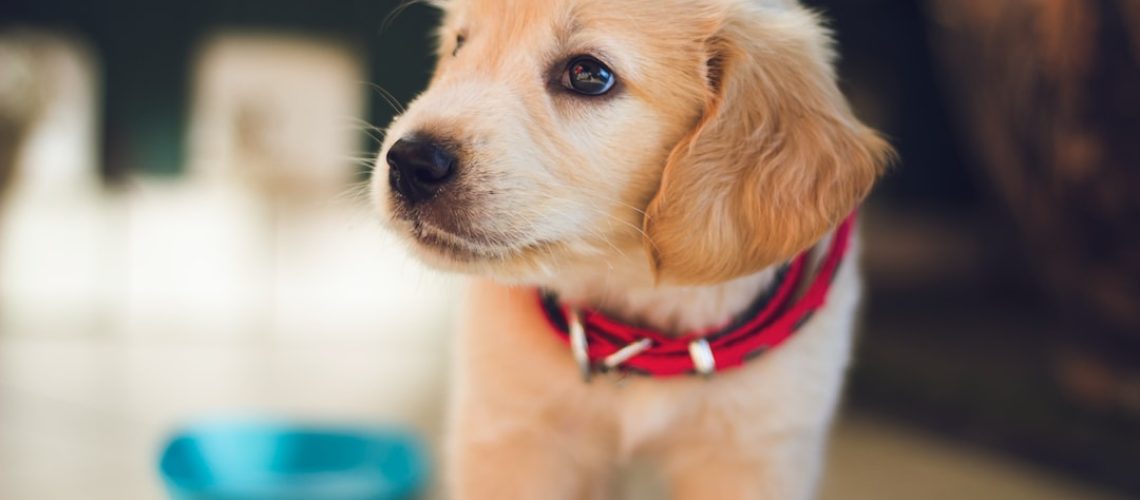The Ultimate Guide to Pet Socialization and Training: Creating Happy and Well-Behaved Pets
The Role of Socialization in Pet Training: Learn about the importance of early socialization for pets, the benefits it brings, methods of socializing pets, techniques for socializing puppies, adolescent dogs, and adult dogs, the impact of lack of socialization and training, and the importance of obedience training for pets.
The Importance of Pet Socialization
In addition to the immediate benefits of reducing anxiety and the risk of aggressive incidents, pet socialization also has long-term implications for a pet’s overall well-being and quality of life. For example, socialized pets are known to experience increased exercise and enjoyment, leading to better physical health and mental well-being. When pets are comfortable interacting with other animals and humans, they are more likely to engage in activities that promote physical activity, such as playing and going for walks. This not only contributes to their physical health but also enhances their emotional state, as they experience a greater sense of enjoyment and fulfillment in their daily lives.
Furthermore, the positive impacts of pet socialization extend to the practical aspects of pet care. Socialized pets are easier to groom and handle during veterinary exams, which is essential for their overall health and well-being. A pet that is accustomed to being handled and examined is less likely to experience anxiety or stress during routine check-ups, enabling veterinarians to provide necessary care more effectively. This aspect of socialization underscores the importance of preparing pets for various real-world situations, ensuring that they are not only emotionally resilient but also adaptable to practical care routines.
In summary, the importance of pet socialization cannot be overstated. It not only influences a pet’s immediate behavior and responses but also has far-reaching implications for their long-term physical and emotional well-being, making it an essential component of responsible pet ownership.
Benefits of Pet Socialization
Pet socialization plays a crucial role in reducing anxiety and the risk of aggressive incidents in pets. When pets are exposed to various social situations in a positive and fear-free manner, they learn to react to the world in a healthy way, without fear or aggression. This not only creates a sense of security for the pets but also enhances their adaptability to different environments and experiences. For example, a well-socialized dog is more likely to remain calm and composed in a crowded park or during a visit to the veterinarian, making the overall experience less stressful for both the pet and the owner.
Moreover, the benefits of socialization extend to the physical health and mental well-being of pets. Socialized pets tend to be more active and engage in play, walks, and other physical activities, resulting in improved physical health and overall happiness. For instance, a dog that has been socialized from a young age may eagerly participate in puppy playdates, dog park visits, and other social activities, leading to an active and fulfilling lifestyle. Additionally, the positive interactions during socialization can contribute to the pet’s mental well-being, reducing stress and promoting a positive outlook on life. Overall, pet socialization is a vital component in ensuring the holistic well-being of our beloved animal companions.
Methods of Pet Socialization
In addition to arranging puppy playdates with dogs you know are healthy and friendly, and doggie daycare, there are various other effective methods for socializing pets. Exposure to different environments and experiences is essential for their overall development and adaptability. For example, introducing pets to various sounds, such as doorbells, vacuum cleaners, and car noises, can help them become acclimated to different auditory stimuli, reducing the likelihood of fear or anxiety in response to loud noises.
Furthermore, taking pets on car rides to different locations, such as the beach, the park, or a friend’s house, can broaden their exposure to new environments and people. This type of positive exposure can help pets feel comfortable and secure in unfamiliar settings, ultimately contributing to their confidence and well-being. It’s important to ensure that these experiences are associated with positive outcomes, such as treats, praise, and playtime, to reinforce the idea that new places and people are enjoyable and safe.
Another effective method of socialization is involving pets in various activities around the house, such as mealtime exercises. For instance, teaching pets to sit and wait for their food, or using food-dispensing toys, can help prevent food aggression and promote positive mealtime behaviors. These activities not only encourage mental stimulation but also create a positive association with mealtime, reducing the likelihood of possessive or aggressive behavior around food.
By incorporating these additional methods into a pet’s socialization routine, owners can ensure a well-rounded and comprehensive approach to socializing their pets, ultimately leading to confident, well-adjusted, and behaviorally sound companions.
 Socializing Puppies, Adolescent Dogs, and Adult Dogs
Socializing Puppies, Adolescent Dogs, and Adult Dogs
Socializing puppies is crucial for their overall development and behavior. It involves exposing them to a variety of experiences in a positive and fear-free manner. For example, introducing puppies to different sounds, such as doorbells, vacuum cleaners, and traffic noises, helps them become familiar with common environmental stimuli, reducing the likelihood of fear or anxiety in the future. Additionally, gentle and positive handling during their early stages of life is essential for fostering trust and confidence, laying the foundation for well-adjusted and well-behaved adult dogs. When puppies are introduced to new people, they learn to interact with individuals of varying ages, appearances, and behaviors, shaping their social skills and friendliness. This process is instrumental in ensuring that puppies grow into friendly and confident adults, capable of adapting to diverse social environments.
As dogs transition into adolescence and adulthood, continued socialization remains vital for their mental and emotional well-being. Varying their walks by exploring different routes, environments, and encountering various stimuli like different people and animals helps adolescent and adult dogs become more adaptable and less prone to anxiety or aggression. Furthermore, setting up playtime with other dogs and engaging them in interactive activities fosters positive social interactions and strengthens their behavioral development. These experiences contribute to their overall socialization, making them more well-adjusted and better equipped to navigate different social scenarios.
 The Impact of Lack of Socialization and Training
The Impact of Lack of Socialization and Training
The lack of proper socialization and training can have significant consequences for pets and their owners. When pets are not exposed to various stimuli and experiences in a positive and fear-free way, they may develop behavioral issues and struggle to adapt to new situations. For example, a dog that has not been socialized may become anxious or exhibit aggressive behavior when encountering new people or animals. This can lead to challenges in everyday situations, such as going for walks in public places or visiting the veterinarian. As a result, pet owners may find it challenging to manage their pet’s behavior, leading to frustration and stress for both the pet and the owner.
Furthermore, the impact of inadequate socialization and training extends to the high rate of pet surrenders to shelters. When pets display behavioral issues due to lack of socialization, their owners may feel overwhelmed and unable to address these issues effectively. Consequently, pets may be surrendered to shelters in the hope that they will receive the necessary care and training. The consequences of pet surrenders include emotional distress for the owners, as well as the potential risk of euthanasia for the surrendered pets. Therefore, it is crucial for pet owners to prioritize socialization and training to prevent these challenges and ensure a positive and fulfilling relationship with their pets.
Obedience training is essential for correcting unwanted behaviors and providing mental stimulation and exercise for pets. It is not limited to puppies and can benefit older pets, improving their physical health, mental stimulation, and quality time with their owners. Involving the whole family in the socialization and training process can create a cohesive and supportive environment for the pet, ensuring consistent and positive experiences throughout their development.
How can Off Leash K9 Training Help?
At Off Leash K9 Training Twin Cities and Central MN we can help from puppyhood to adulthood, giving you the tools and obedience foundation you need to comfortably socialize a dog of any age! Does this mean an adult dog that has never played with other dogs will now be comfortable doing that? No, absolutely not – but socialization is far more than just playing with other dogs. Every dog is unique and has different training needs. Reach out to us, meet one of our trainers, and see how we can help your dog!


 Socializing Puppies, Adolescent Dogs, and Adult Dogs
Socializing Puppies, Adolescent Dogs, and Adult Dogs The Impact of Lack of Socialization and Training
The Impact of Lack of Socialization and Training
